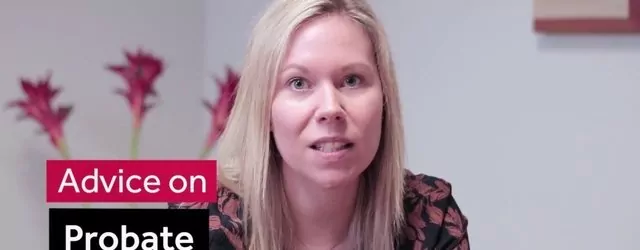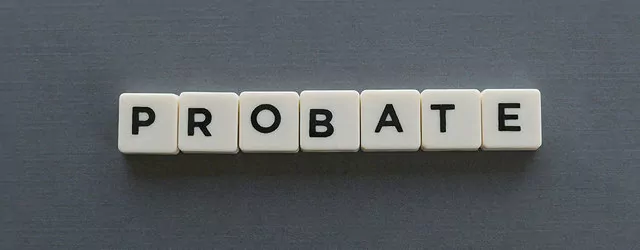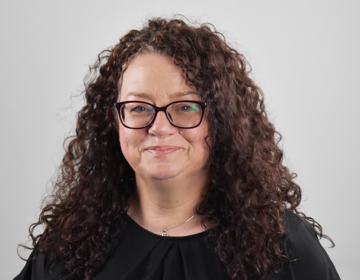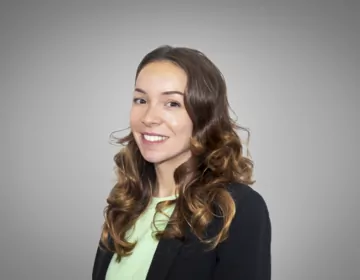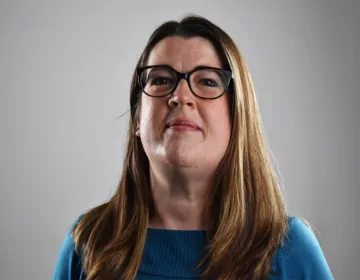Losing a loved one is never easy, and leaves so many arrangements to make that knowing where to begin can be overwhelming. Whilst we know it will be a difficult time, the following guide should help you prioritise the steps you need to take. Our experienced solicitors are more than happy to assist with individual steps, or can handle the entire process from start to finish should you prefer. If you would like to discuss any of this in more detail then please feel free to contact our offices and we would be glad to help.
What to do when someone dies
Register the Death
The doctor in attendance will complete the Medical Certificate of Cause of Death and send it to the medical examiner.
The medical examiner will review the information to make sure it is accurate before contacting you to discuss the cause of death and to answer any questions you might have.
The medical examiner will then send the paperwork to the registration service who will contact the next of kin to arrange an appointment to register the death. This appointment must take place within 5 days.
However, if the death has been referred to the coroner, the process may take a little longer but the Coroner's Office will complete the paperwork and contact you. The coroner will then provide the necessary paperwork to the registration service, who will then contact the next of kin to arrange an appointment to register the death.
When you attend the office, you will need to take the medical certificate and, if possible, any identification documents for the person that you have access to; such as a passport, driving licence, birth certificate, etc.
The Registrar will then provide you with a Death Certificate (we would advise that you also purchase one or two extra copies just in case, as most of the organisations you will be dealing with going forward will not accept photocopies), along with a Burial/Cremation slip known as a ‘Green Form’. You can use this slip to begin arranging the funeral, as it will be required by the Funeral Director.
If it is available in your area, the Registrar will also speak to you about the Government’s ‘Tell Us Once’ service, which will notify all the various Government services of the death.
Locate the Will
The most important document to locate will be your loved one’s Will. If a Will was written then it must be found. If you are unsure about where the Will may be, try contacting their Solicitor or Bank, as it is common for Wills to be stored with them. If you cannot find the Will, you can always conduct a search of The National Wills Registry.
The Will should list the Executors who will be responsible for administering the estate.
If no Will was prepared, then the person is said to have passed away ‘intestate’ and the Law will determine who is responsible for administrating the estate, as well as how any assets and monies are divided. We would be more than happy to advise you on this if required.
Arrange the Funeral
With the Green Form supplied by the Registrar, you can now organise the Funeral. Make sure to check the Will, as it may contain wishes for the funeral, along with details of any potential pre-paid funeral plans.
Funeral Directors are regulated, and will supply you a breakdown of their costs upon request. The Local Council may also offer their own funeral service should you prefer.
Collect any other Paperwork you can find
One you have located the Will, try and find as many other pieces of paperwork you can find. There will be many different organisations to notify of the death, all of which will have various account names and references attached to them, so the more documentation you have available the easier this will be. Try to locate as much paperwork as you can, relating to things such as:
- Social services, particularly if they had nursing care or home help
- Local council for council tax and any parking permits for street or disabled parking. It may also be worth registering on the Bereavement Register so you will not receive any junk mail.
- DVLA to return their license and register a change of ownership on the vehicle
- Insurance companies, for both life insurance as well as house & contents insurance
- Bank and Mortgage provider(s)
- Utility companies; electricity, gas, water, telephone & internet
- Royal Mail if a redirect is necessary
- All loans, credit card and store card companies
- TV licensing
- Membership of clubs and associations
- UK Passport Agency
- Pension providers
Useful Links
If you have any queries about any of the processes involved in administering the estate of someone who has passed away, please feel free to contact our offices and one of our specialist team will be happy to help.
If you know someone who has passed away, and feel that their wishes are not being carried out, or that their estate is being administered improperly, then our Dispute Resolution team may be able to help you further.
Alternatively, the following resources may prove useful in answering any queries you may have:
- Cruse Bereavement Care
- Age UK
- The National Wills Register
- Gov.UK’s ‘Tell Us Once’ Service
Want to know more?
Meet the Team
Grant of Probate
All is oustanding!
Miss C Chesterfield
From the minute you walk into reception you are put at ease, and this continues right through the chain. Would recommend them any time.
Mr G, Chesterfield
I can’t thank Banner Jones enough for the kindness and patience, and would highly recommend this firm.
Mrs S, Chesterfield
Probate
Kathryn provided us with a first class service at our time of need. Can not thank her enough for helping us through a difficult time in such a kind and professional manner.
Mrs E, Deepcar
The service provided was excellent and all the staff were friendly, helpful
Mrs L, Chesterfield
Will Writing
Excellent company. Highly satisfied.
Mrs H, Ashgate
Probate Administration
Exceptional service; professional but friendly. Felt at ease and relaxed when given explanation of the matter being dealt with at a very sad time.
Mrs L, New Tupton
Me and my family would recommend Banner Jones to anyone for their kindness and sympathy to all of my family. Thank you very much once again.
Mr M, Brampton
Probate Solicitor
The solicitor was most helpful in every way, explicit in detail and very caring.
Mrs R, Coal Aston
Excellent service from start to finish at a very difficult time.
Ms D, Danesmoor
Very friendly experience with clear and uncomplicated explanations, giving us confidence in the professional service.
Mr & Mrs L, Grindleford
The service I received couldn't have been better!
Mrs C, Chesterfield
We were very happy with the service we received, we would definitely recommend.
Mr & Mrs W, Shuttlewood
We found Banner Jones to be very friendly. They directed us through all the necessary channels. And were extremely helpful, putting my husband and myself at ease at such a sad, stressful time. A big thank you.
Mr & Mrs T, Stretton
Thank you for everything you did to help us through a difficult time.
Mr M, Mansfield
Thank you for your excellent service, prompt attention and being kept up to date.
Mrs P, Old Whittington
For ourselves – we do not think that you could have improved any part of the service. All dealings with our advisor were very satisfactory. Thank you. We would not hesitate to contact Banner Jones if needed.
Mr & Mrs D, Wingerworth
The efficiency and respect with which my late husband’s Will was administered could not have been better. Many thanks.
Mrs W, Warsop
Excellent, professional and supportive communication throughout. Thank you very much, Kat.
Mrs B, Shirland
Very efficient service at a difficult time which helped matters go smoothly
Mrs S, Dronfield
Very efficient, friendly and professional. We would definitely recommend to friends and family. They made the whole experience problem free.
Mrs W, Mansfield
We’re really grateful for the work you did for us. 10 out of 10!
Mr & Mrs S, Bridlington
Very easy to make appointments, very personal service from all people at Banner Jones, my solicitor was very friendly and put me at ease. If I needed a solicitor again, Banner Jones would be the first on my list.
Mr C, Dronfield
Brilliant service, kept well informed all the way through the process. Would definitely recommend.
Miss H, Nottinghamshire
Cannot fault the service, efficient, prompt and cautious. Matters explained very well and clearly. Pleasantly surprised.
Mr & Mrs D, Mansfield
Service provided was excellent. All the staff were very helpful, considerate and professional. I would highly recommend to friends and family.
Mr W, Nottinghamshire
Kat, the solicitor who assisted in arranging for the deputyship for my mother was extremely helpful in what I call distressing time where control of my mothers affairs have been passed onto me. Many thanks Kat for the pleasantness.
Mrs H, Chesterfield
Very clear communication, all of my questions were answered and nothing was rushed.
Mr & Mrs F, Chesterfield
Banner Jonesprovided me with a very professional and friendly service in difficult, personal circumstances and I cannot reccomend them enough. 10/10.
Mr T, Chesterfield
Excellent, efficient service, Katie was very pleasant and polite. We were made to feel at ease.
Mr Mrs C, Dronfield
Natalie was very professional and friendly. Good listener, very caring. Thank you Natalie.
Mrs M, Mansfield
All my dealings have been with Sarah who has always been professional, knowledgeable and extremely helpful. I would recommend Banner Jones.
Mr P, Derbyshire
Excellent, professional service.
Mrs M, Mansfield
Very good and friendly reception staff; excellent professioanl service; good comunication and timely attention to my work undertaken.
Mrs F, Chesterfield
Outstanding service. So very helpful, knowledgeable and easy to understand. A pleasant member of your team!
Mrs K, Sheffield
We recieved a promt, helpful and most efficient service. I wouldn't hesitate to ever use Banner Jones Solicitors again.
Amy was excellent - Thank you so much for all your advice.
Ms E, Chesterfield
I would just like to pass on my comments with regards to the first class service we received with the estate of my dear late mother.
We have been dealing with Banner Jones and I would like to say they have been excellent throughout. We have found them to be extremely efficient, helpful, understanding and friendly at this difficult time.
Also very accommodating with appointments as I work full time.
I would also comment she was very patient in dealing with my elderly father who struggles with severe hearing difficulty.
I have no hesitation in using your services again, we will shortly be making appointments to update the will for my father and in due course I will also be updating my own will with Banner Jones as all of our family affairs are with your company.
I will have no hesitation in recommending Banner Jones Solicitors to others, once again, thank you to you all.
Ms Carpenter
Banner Jones & Kat Wheeldon's help has got me through this last year. Their help and kindness was without doubt invaluable.
Mrs W, Chesterfield
Kathryn Wheeldon has provided me with an excellent service and I would recommend her to all of my friends and family.
Mrs R, Chesterfield
Excellent service! Becasue of illnesses, my new will from start to signing took half a day!
Mrs B, Nottingham
Excellent service! Thank you for all fo your help and making everything stress free for me. Will definitley recomment you.
Mr B & Mrs M, Chesterfield
Excellent Service from Banner Jones. Thank you.
Mr & Mrs L
Very helpful and understanding. Thank you.
Mrs B, Chesterfield
Very happy with all aspects of my treatment at Banner Jones. Thank you very much Katie.
Mrs A, Chesterfield
Excellent. Katie was very pleasant and helpful.
Mr & Mrs B, Chesterfield
Very thorough, professional and friendly service, thank you.
Mrs K, Chesterfield
Friendly, and vey helpfull staff.
Mr & Mrs J, Mansfield
Excellent, friendly service, my Will was updated very quickly for me, which I really appreciate.
Mrs P, Chesterfield
Natalie at Banner Jones helped us update our Wills. She was very thorough whilst being sensitive to our situation She made it an easy, simple process. We recieved our Wills quickly and completed the matter within 3 weeks!
Mr & Mrs F, Chesterfield
Excellent service from start to finish! Prompt, trustworthy, reliable and extremely helpful. Highly recommended!
Many thanks to Katie Woodward for her wonderful assistance.
Mr & Mrs C, Chesterfield
Very pleased with the service recieved. Natalie was a very pleasant and efficient person to deal with. I wouldn't hesitate to recommend your services. Thank you.
Mrs B, Chesterfield
Excellent service, all matters were dealt with in a very professional way.
Mr M & Dr R, Sheffield
We used Kat Wheeldon at Banner Jones for our Wills and Powers of Attorney. We always had a friendly but professional service. Details were explained clearly so that we understood exactly what was involved and required. Fees weere explained straight away. We shall return to Banner Jones for any further legal work.
Mr & Mrs Diprose
I have recieved help and advice from Katie Woodward, she is kind, considerate and professional. I would be pleased to recommend her to friends, family and colleagues. Many thanks.
Ms A, Chesterfield
I have been with this solicitors since the 60's and I have always been happy with this company. I was very happy with seeing Amy about my Will, she was very helpful.
Miss W, Mansfield
Banner Jones staff have always been professional and kind throughout my dealings with them. They have been very considerate towards my elderly Uncle, and met his needs - Whether his physical or mental impairments - Making adjustments to their practice with no hesitation at all.
Mr P, Chesterfield
Thank you so much for your excellent service in helping me making a Will.
Mrs B, Mansfield
We were very happy with the service provided.
Mr & Mrs W, Dronfield
Thank you all for your kindness and support in a very sad time in my life, you have helped so much.
Mrs W, Chesterfield
On behalf of Darren and myself I would like to thank you both for all your help and assistance in this matter.
Excellent and efficient throughout and handled with a professional and sensitive approach.
Mr T & Mr D
Thank you for last weeks meeting which we both found very informative, friendly and helpful. You were able to reassure us and put our minds at rest about the number of issues. Thank you once again.
Mr & Mrs B, Derbyshire
Because we are in our 90's and only essentially amending our Wills, Amy was very patient and extremely sensitive to our situation. She explained the issues involved in a manner whcih was very easy to understand. She gave us a great deal on confidence and we were extremely happy with the outcome.
Mr & Mrs W, Mansfield
All staff (off all levels) were very friendly & helpful. Tea/ coffees were made available at the outset and not as an afterthought. I can see no reason at all to not use Banner Jones again for any other aspects of my affairs! Thank you!
Mr M, Chesterfield
As far as I am concerned, Kat Wheeldon's service at Banner Jones is excellent.
Mrs W, Chesterfield
Thanks again for all your help wrapping up Dad’s estate it has been such a simple process for us, plenty of compassion and empathy. I am glad the effort put in by us helped with your hard work
Mr D





